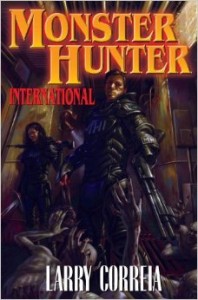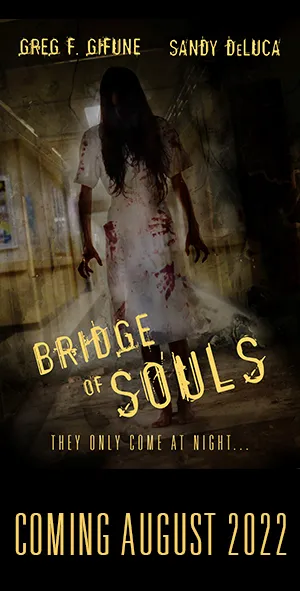
Larry Correia
Baen
2009
Reviewed by Michael R. Collings
Larry Correia’s Monster Hunters International is a hoot…literally, figuratively, and every way in between.
More than that, however, it is deeply, essentially comedic on multiple levels. Blatant moments of near slapstick—often when the blood flies thickest and fastest—support a Dantesque thematic awareness of the ultimate, eternal conflict between good and evil, between light and darkness, and an intensely optimistic sense that, for all of its manifold faults, humanity has the potential to choose the light.
The first of these enters MHI narratively in the first two sentences, with their perfectly poised juxtaposition of colloquial, lighthearted tone with violent action, a consistent characteristic of Owen Zastava Pitt’s voice throughout. Thematically and structurally, the novel merits the adjective Dantesque through its incremental descents into realms of darkness and their inherent denizens, each more vile and vicious than the last, climaxing in a horrifying descent into a darkness that opens into a rift leading to the ultimate sphere/circle of Evil and an encounter with the personification of malevolence, foulness, and maliciousness. Through careful, precise pacing, it moves from the everyday “normal” world—something Pitt initially yearns for—to the worlds of gods, demons, and Old Ones disgusting enough and frightening enough to make H.P. Lovecraft proud.
As if that were not sufficient, MHI is also an abecedary of sorts—a primer, as it were, to the complexities of monsters inhabiting this world and others. It refers to or introduces everything from Angels (and their concomitants, Demons) to Zombies. Some are already well-known to readers of horror; others are borrowed from obscure mythologies or apparently created for this particular universe. Indeed, the Zs might be said to include not only the requisite walking dead but the hero himself, with his unusual middle name, Zastava—shortened to Z as a nickname—who is portrayed as near-monstrous in form and visage through most of the story. And, without indulging in symbol-hunting of the more egregious sort, it is worth noting that his surname, Pitt, not only suggests the character’s physical and geographical descent at the conclusion but the moral descent potential within him, a potentiality that all of the evil characters seem to know about but which remains a mystery to him until the end. Even his first name, Owen, plays a symbolically important part…but for more about that you will have to read the novel.
The plot is relatively straightforward. As a result of the defenestration of Mr. Huffman alluded to in the opening paragraph, Pitt is invited to join a private firm, Monster Hunters International, which works—sometimes smoothly, sometimes antagonistically—with the Justice Department’s highly secretive Monster Control Bureau to control incursions of supernatural creatures. The feds claim overriding jurisdiction, of course, and the MHI are often left to clean up local matters. But when it becomes apparent that something huge and hugely evil is in the works, leading to the end of Time itself, the two organizations must battle each other and a variety of monsters, each conflict bringing them—and Pitt—closer to the devastating truth.
But none of this truly captures the essence of Monster Hunters International. It is simply fun. Correia exults in words and pictures, in grotesqueries and oddities, in ugliness and monstrosities—but also in beauty and emotion-filled depths. He incorporates crucial considerations of things moral, theological, cosmic—but never loses sight of the sense that MHI may touch upon didacticism but is fundamentally comic in the original Greek sense of ‘revel.’ He instructs, yes, as the Roman poet Horace declared over two millennia ago (although many will not agree with his perspectives); but he balances that with the second half of the Horatian dictum: He delights.
- Killing Time – Book Review - February 6, 2018
- The Cthulhu Casebooks: Sherlock Holmes and the Miskatonic Monstrosities – Book Review - January 19, 2018
- The Best Horror of the Year, Volume Nine – Book Review - December 19, 2017
- Widow’s Point – Book Review - December 14, 2017
- Sharkantula – Book Review - November 8, 2017
- Cthulhu Deep Down Under – Book Review - October 31, 2017
- When the Night Owl Screams – Book Review - October 30, 2017
- Leviathan: Ghost Rig – Book Review - September 29, 2017
- Cthulhu Blues – Book Review - September 20, 2017
- Snaked: Deep Sea Rising – Book Review - September 4, 2017


